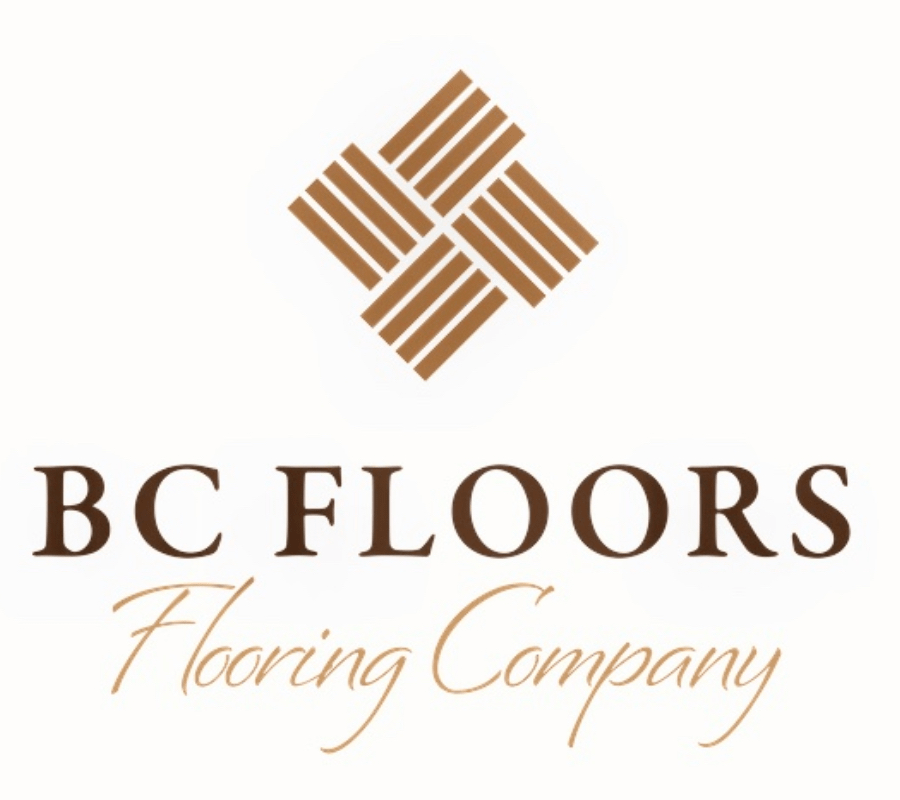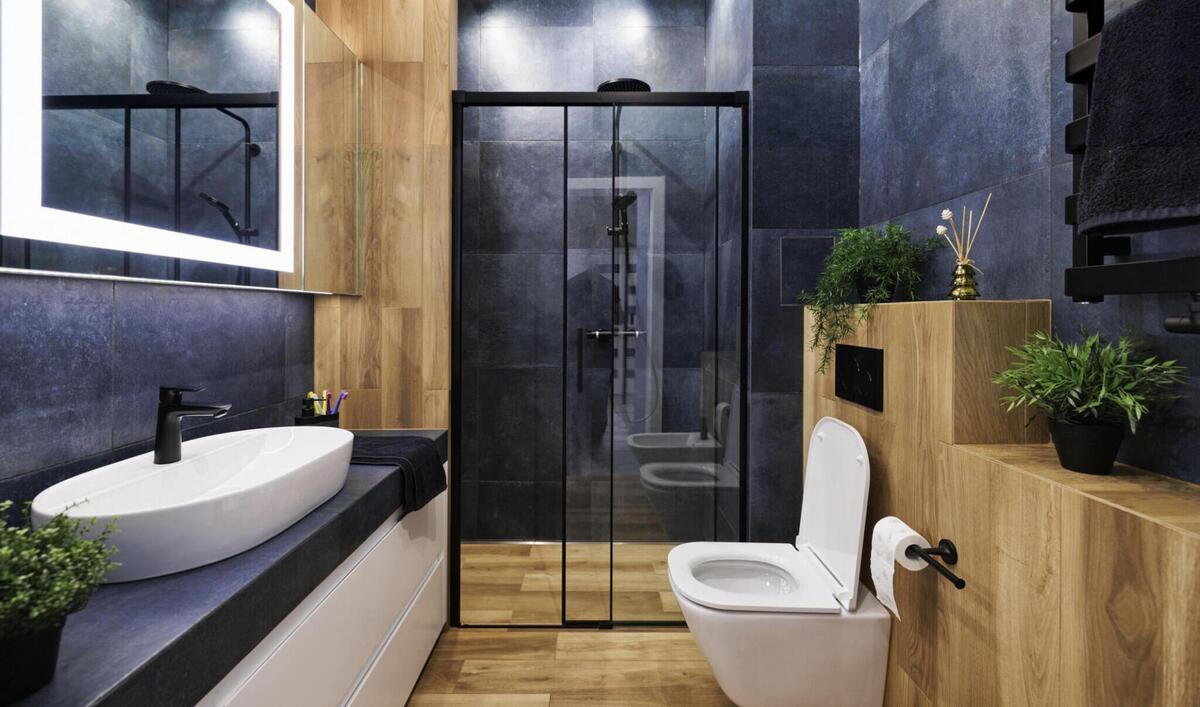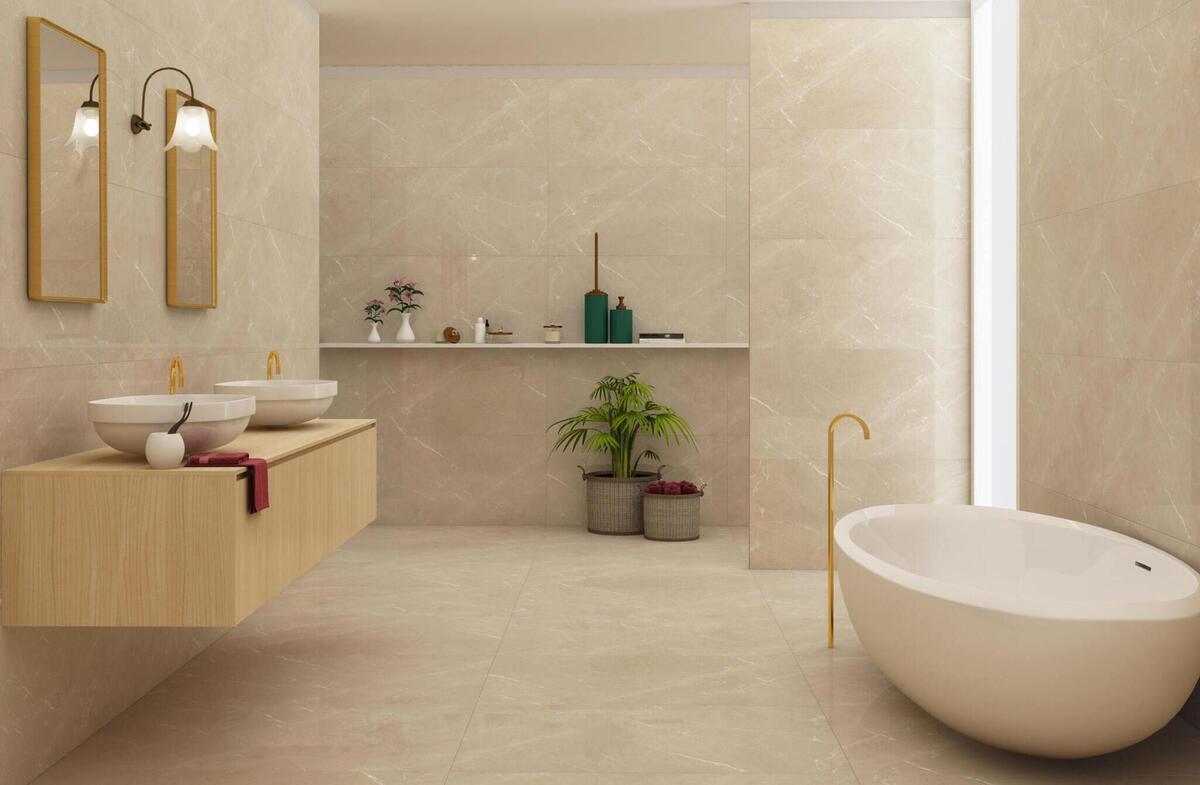When it comes to choosing new flooring for your bathroom, two popular options are tile and vinyl. Both offer durability, water resistance, and style, but they each have their pros and cons. As you consider which material is best for your bathroom remodel or renovation, here are some key factors to weigh when evaluating vinyl vs tile flooring:
1. Appearance
Tile comes in a vast array of colours, patterns, textures, and designs like stone, wood, or concrete. This allows you to customize the look of your bathroom completely. Tile ranges from basic white subway tile to intricate mosaics. The grout lines also add visual interest. Vinyl comes in fewer styles, like stone, wood, or abstract patterns. However, modern printing techniques allow vinyl to mimic natural materials very convincingly. Overall, tile provides more unique design possibilities, with over 4,000 tile showrooms in the U.S. compared to just 500 vinyl showrooms.
2. Feel Underfoot
Solid vinyl and luxury vinyl tile have a softer, more flexible feel than ceramic or porcelain tile. The subfloor impacts the feel for both flooring types, but vinyl has more give while tile is firm. This can impact comfort when standing for long periods. Tile loses some heat faster than vinyl as well. In a 2021 survey, 61% of homeowners preferred the feel of tile over vinyl.
3. Durability
Porcelain and ceramic tile are very durable and resistant to water, heat, cracking, and scratches. Popular types of vinyl like luxury vinyl tile (LVT) are also highly durable and waterproof. Sheet vinyl is susceptible to scratches and tears over time. The average tile floor can last over 50 years, while vinyl lasts around 20–25 years before replacement. For high-traffic bathrooms, porcelain tile is often the most durable flooring option.
4. Installation
Installing tile requires more skill and labour compared to vinyl. The subfloor must be prepared and tile properly laid and grouted. Vinyl snap-together floating floors are quicker and easier to install without grout lines. Proper prep is still required. Hiring a professional is recommended for tile, while DIY vinyl installation is achievable for many homeowners.
5. Cost
Tile is generally more expensive upfront than sheet or vinyl tile, averaging $7-15 per square foot installed compared to $3-5 per square foot for vinyl. The installation costs are also higher. Luxury vinyl tiles are moderately priced, while sheet vinyl is the most affordable option. Long-term, tile may offset costs due to its longevity if properly installed. Calculate total project costs, not just material costs, when weighing vinyl vs tile flooring.
6. Moisture Resistance
Tile and waterproof vinyl both resist water very well. Tile grout can be prone to moisture damage if improperly sealed. Make sure the tile grout is waterproofed. Both floorings can be used in bathrooms and showers, but Tile requires extra sealing yearly.
7. Cleaning and Maintenance
Vinyl requires little maintenance beyond sweeping and damp mopping as needed. Porous tile requires more frequent sealing and can be prone to staining, mildew, and soap scum buildup in the grout lines, requiring deep cleaning. Use sealants and cleaners made for natural stone or ceramic tile.
8. Comfort and Noise
The tile feels hard and cold underfoot, even with radiant floor heating. Vinyl provides more cushioning and insulation. Sound echoes on tile floors, while vinyl dampens noise and has a minimal acoustic impact. Consider acoustics and comfort when evaluating vinyl vs tile flooring options.
9. Safety
Porcelain tile offers increased traction and grip compared to vinyl with an average DCOF coefficient of 0.42, making it less slippery when wet. Proper sealing is required on tile grout lines to avoid potential bacteria and mould issues.
Final Thoughts
Overall, tile and vinyl each have pros and cons for bathroom floors. Weigh factors like moisture resistance, durability, cost, design, comfort, and maintenance requirements. For high-traffic bathrooms that need a beautiful yet durable floor, tile is often the best flooring choice. But for quick and affordable installation or a softer underfoot feel, vinyl deserves consideration. Consult with flooring professionals to determine if tile or vinyl is better suited for your specific bathroom space and needs. With the right choice and proper installation, your new bathroom floors will look beautiful and perform for years to come.


